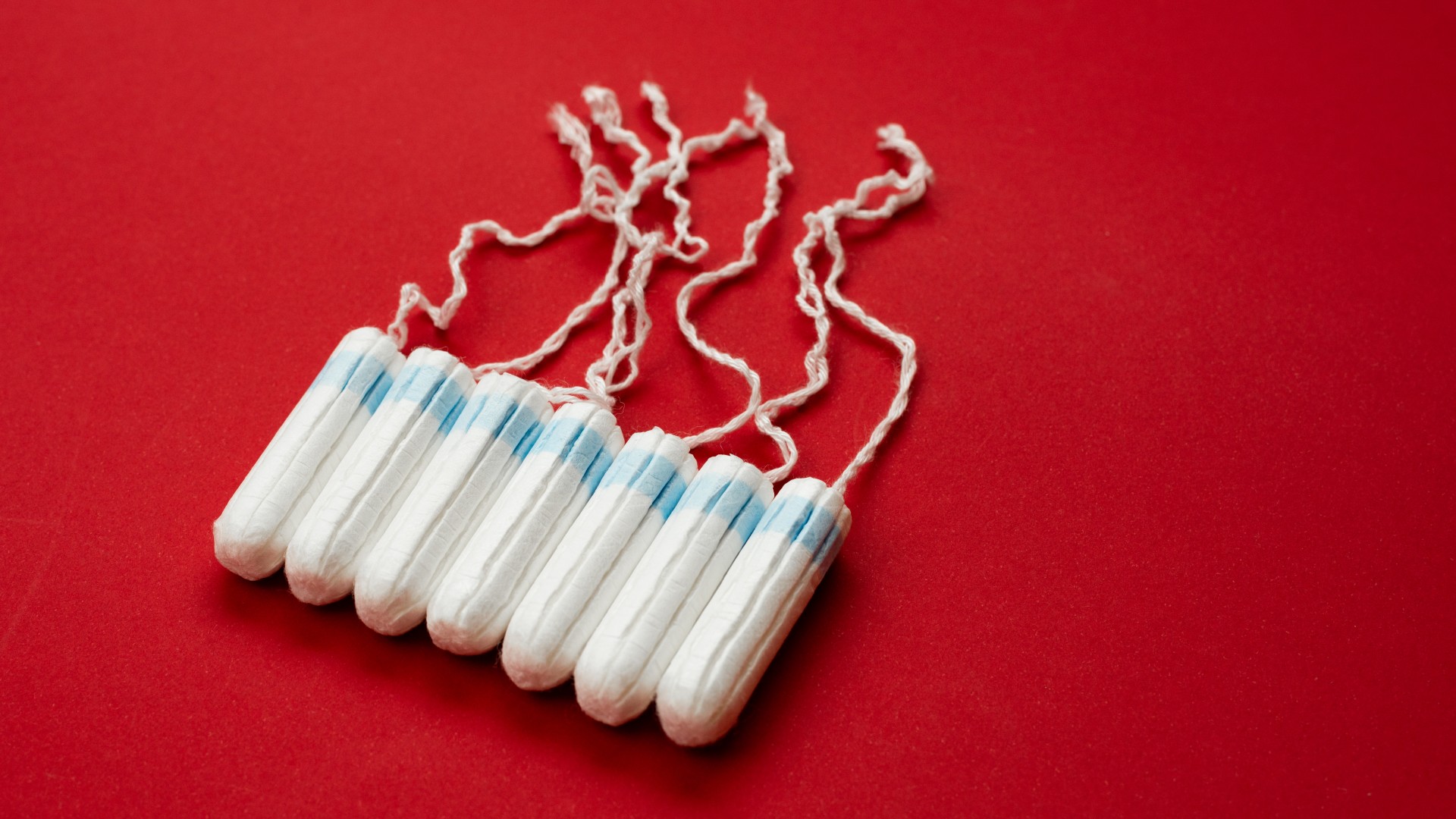A study found toxic heavy metals in most tampon brands. Are they safe to use?
Over a dozen brands tested positive, including organic tampons


A free daily email with the biggest news stories of the day – and the best features from TheWeek.com
You are now subscribed
Your newsletter sign-up was successful
A recent study about tampons is alarming consumers. The research, published in the scientific journal Environment International, found evidence of 16 different metals, including arsenic and lead, in a wide range of tampons sold in the United States and Europe. The findings have sparked fear about whether or not tampons are safe to use. However, several experts say the study is no reason to panic.
What did the study uncover about tampons?
The researchers tested 30 tampons from 14 different brands purchased from online retailers and stores in the United States, United Kingdom and Greece. They conducted a blinded study, so they did not know the brands. The team tested the tampons for 16 heavy metals: arsenic, barium, calcium, cadmium, cobalt, chromium, copper, iron, manganese, mercury, nickel, lead, selenium, strontium, vanadium and zinc.
Researchers found an average of "100 nanograms per gram of lead and two nanograms per gram of arsenic in the tampons," the senior study author Kathrin Schilling, an assistant professor of environmental health sciences at Columbia University's Mailman School of Public Health, said to CNN. There was no "detectable level of chromium and no detectable level of mercury, which is very good." Among the brands, organic tampons had higher levels of arsenic, while nonorganic tampons had higher levels of lead.
The Week
Escape your echo chamber. Get the facts behind the news, plus analysis from multiple perspectives.

Sign up for The Week's Free Newsletters
From our morning news briefing to a weekly Good News Newsletter, get the best of The Week delivered directly to your inbox.
From our morning news briefing to a weekly Good News Newsletter, get the best of The Week delivered directly to your inbox.
The study was unable to determine if the heavy metals could pass from the tampon into the body, meaning it's still unknown whether there are potential health impacts. Levels of the toxic chemicals found were low, and two prior studies by the same research team did not find significantly higher levels of metals in the blood of women who used tampons as compared to those who did not. Still, it's important to note that "arsenic shouldn't be present in tampons at all, and we don't yet understand the effects of vaginal exposure since it hasn't been studied," Schilling said. "There is no safe level of lead exposure, and it has been shown to cause reproductive health issues in women."
Are tampons safe to use?
Many experts, including the study's authors, say these findings are not as extreme as they might seem. "There's small amounts of these metals found, really, everywhere," Dr. Bethany Samuelson Bannow, an associate professor of medicine specializing in hematology at Oregon Health and Science University, who was not involved in the study, said to The New York Times. She added that she's less concerned about the metals being in tampons than "I would [be] about having them in food or water."
It's understandable to be worried about these heavy metals, since vaginal tissue is more permeable than other parts of the body. If metals did leach into the body, it could be a significant problem, said Anna Pollack, an associate professor of global and community health at George Mason University, to CNN. "However, there is no reason for people to be afraid to use menstrual products at this time," she added. Tampon users should "just be aware of the issue and monitor any research that develops."
Dr. Nathaniel DeNicola, an OB-GYN who served as the environmental health expert for the American College of Obstetricians and Gynecologists, told NPR that the most important question is not whether there are chemicals in tampons, but rather "when does it convert to a dangerous amount?" If you are concerned about buying safe menstrual products, you should rely on a combination of "third-party testing and some personal due diligence," he added. It hasn't yet been concluded that tampons are risky. Instead, these findings are a "reality check for the consumers and the public at large, that most products that you're using do not go through rigorous testing for safety, and most products do have chemicals in there somewhere," DeNicola said.
A free daily email with the biggest news stories of the day – and the best features from TheWeek.com
Theara Coleman has worked as a staff writer at The Week since September 2022. She frequently writes about technology, education, literature and general news. She was previously a contributing writer and assistant editor at Honeysuckle Magazine, where she covered racial politics and cannabis industry news.
-
 6 exquisite homes with vast acreage
6 exquisite homes with vast acreageFeature Featuring an off-the-grid contemporary home in New Mexico and lakefront farmhouse in Massachusetts
-
 Film reviews: ‘Wuthering Heights,’ ‘Good Luck, Have Fun, Don’t Die,’ and ‘Sirat’
Film reviews: ‘Wuthering Heights,’ ‘Good Luck, Have Fun, Don’t Die,’ and ‘Sirat’Feature An inconvenient love torments a would-be couple, a gonzo time traveler seeks to save humanity from AI, and a father’s desperate search goes deeply sideways
-
 Political cartoons for February 16
Political cartoons for February 16Cartoons Monday’s political cartoons include President's Day, a valentine from the Epstein files, and more
-
 ‘Zero trimester’ influencers believe a healthy pregnancy is a choice
‘Zero trimester’ influencers believe a healthy pregnancy is a choiceThe Explainer Is prepping during the preconception period the answer for hopeful couples?
-
 Metal-based compounds may be the future of antibiotics
Metal-based compounds may be the future of antibioticsUnder the radar Robots can help develop them
-
 Stopping GLP-1s raises complicated questions for pregnancy
Stopping GLP-1s raises complicated questions for pregnancyThe Explainer Stopping the medication could be risky during pregnancy, but there is more to the story to be uncovered
-
 RFK Jr. sets his sights on linking antidepressants to mass violence
RFK Jr. sets his sights on linking antidepressants to mass violenceThe Explainer The health secretary’s crusade to Make America Healthy Again has vital mental health medications on the agenda
-
 The controversial Free Birth Society
The controversial Free Birth SocietyThe Explainer Influencers are encouraging pregnant women to give birth without midwife care – at potentially tragic cost
-
 Nitazene is quietly increasing opioid deaths
Nitazene is quietly increasing opioid deathsThe explainer The drug is usually consumed accidentally
-
 The plant-based portfolio diet invests in your heart’s health
The plant-based portfolio diet invests in your heart’s healthThe Explainer Its guidelines are flexible and vegan-friendly
-
 More women are using more testosterone despite limited research
More women are using more testosterone despite limited researchThe explainer There is no FDA-approved testosterone product for women
